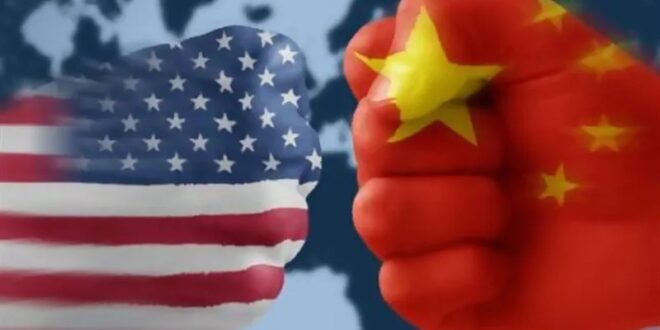Despite the recent opening of some of channels of communication between China and the United States, the two major powers are still at loggerheads over a panoply of global and regional security issues that have tremendous bearings on Philippine security. The current state of China-US relations remains tense and the future direction of their ties continues to be uncertain arising from still unresolved issues that will take time for both great powers to actually settle.
There is no doubt that China and the US are rival powers. Their great power rivalry is escalating as a result of China’s growing global influence matched with stronger confidence as a rising superpower happening amidst the US’ rapid decline, if not decay or corrosion, as an established great world power.
We are now witnessing a historic great power transition between China and the US. Power transition theory contends that there will be a peaceful transition between two competing powers if the established superpower accepts the dominance of the rising rival power. But the global power transition can become violent if the established power rejects, challenges and even obstructs the rise of the rival power.
This scenario was the one observed by a Greek Philosopher, Thucydides, who examined the outbreak of the Peloponnesian War between Athens and Sparta. Dr. Graham Allison describes this situation as Thucydides Trap that we want to avoid between the US and China. Thucydides argued that “It was the rise of Athens and the fear that this inspired in Sparta that made war inevitable.”
Though some scholars have criticized the use of Thucydides Trap argument to describe China-US relations, Thucydides makes sense as a clear warning to both great powers to manage their current differences in order to avoid the disastrous trap for the main purpose of preserving international peace and security.
There are signs that the US is avoiding the Thucydides Trap, albeit with some doubts. Since July 2023, the US has sent high-ranking officials to visit China in order to reopen their channels of communication to discuss various global issues. US Secretary of the Treasury Janet Yellen kicked off the process early July by meeting Chinese Premier Li Qiang, former China Central Bank Governor Yi Gang and former Economic Minister Liu He.
Following this meeting was the brief dialogue between US Secretary of State Anthony Blinken and Minister Wang Yi at the sideline of the ASEAN Summit in Jakarta in mid-July. American climate envoy, John Kerry, went to Beijing to interact with his counterpart, Xie Zhenhua. Aside from these official engagements, prominent private personalities like Elon Musk, Bill Gates and Henry Kissinger also visited China during the last few weeks. All these trips have unleashed cautious optimism to promote closer US-China relations.
On soft issues like economic ties, business promotion, climate change mitigation, and other human security concerns, there are huge prospects for China and the US to really cooperate and share the burden of global leadership to address humanitarian and environmental issues that can lead to the avoidance of the Thucydides Trap. But there are hard issues that can lead the two great powers to the Thucydides Trap. China and the US need to face squarely and manage decisively their differences on these issues. At least two major issues involving the two great powers have tremendous implications for Philippine security:
First is the emerging Asian regional order. The US and China are presenting two models of regional order that present the Philippines hard choices. The US is strengthening the free world by promoting free and open Indo-Pacific by solidifying network of US military alliances in Asia and deepening economic ties with countries forming the Indo-Pacific Economic Framework for Prosperity (IPEF). But China is championing an harmonious world by pursuing free and inclusive world through its Belt and Road Initiative (BRI) and active participation in the Regional Comprehensive Economic Partnership (RCEP).
Second are the flashpoints of conflicts in Asia. The US and China have contending security outlooks on the nature and settlement of conflicts in the South China Sea, Taiwan Straits and the Korean Peninsula. US-China major power competition is more dangerous on these flashpoints of conflicts as they entail the use of military forces if peaceful settlements of disputes fail. Being an American ally, the Philippines can be inevitably dragged in violent conflicts with China, especially in the context of Philippine decision to provide American military effective access to Philippine territories by expanding the Enhanced Defense Cooperation Agreement (EDCA).It is therefore in the interest of the Philippines to see the improvement in US-China relations. World peace and international security heavily depend on how US-China relations will evolve. Being at the crossroad of US-China major power rivalry, the Philippines can help facilitate the development of a new model of major power relationship between the US and China by rejecting elements of cold war mentality in its foreign and security policy.
Cold war mentality frames the world simply into two ideological blocks between the “Free World” and the “Non-Democratic World”. It heightens competition between these two blocks by privileging the need for military superiority against one block in a zero-sum game. The world has witnessed the end of the cold war between the US and the former Soviet Union.
But a cold war mentality is being circulated to describe US-China major power competition. A cold war mentality can lead to a reflexive prediction, a self-fulling prophesy that the US and China are bound to collide at the expense not only of Philippine security but the security of the whole world.
 Eurasia Press & News
Eurasia Press & News



